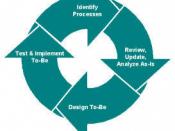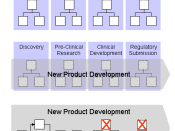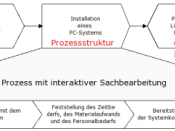Information technology is considered the major enabler for spanning processes over functional and organizational boundaries and supporting process driven organizations. However, the point is not to use IT as an improver for existing activities, as which it often has been conceived, but as enabler for the organization.
Some of the ways that IT changes business processes include: process automation and speed; virtual presence and distance collaboration becomes possible; mobility; allows information to be shared differently; and increases interactivity and allows instant feedback. Information technology, when used appropriately, can enhance business processes.
It occurs naturally, that information systems are no self-purpose; but that they have to serve the organization within they exist. Organizations are composed of two parts, one of them concerned with information management, the other one concerned with using the information. This type of environment has to be supported with relevant information by the Information Systems group to be able to perform its primary task, the transformation of an input, received from another system, into an output to another system.
In value-adding terms, the information system is considered as a secondary function, intended to support the primary functions for maximum performance and value-added effect. This point of view conceives information as being a resource among others, used to produce a company's physical product or service.
The reengineering of procurement at Ford Motor Company is a great example of how Information Technology is an enabler. In the reengineered process the receiving clerk could not authorize supplier payments when materials arrived without the on-line database of purchase orders. Without this database the receiving clerk would not know what goods Ford Motor Company had actually ordered. The clerk's only option when the goods arrived was to assume that they had been ordered, receive them, and then leave it to accounts payable to...


